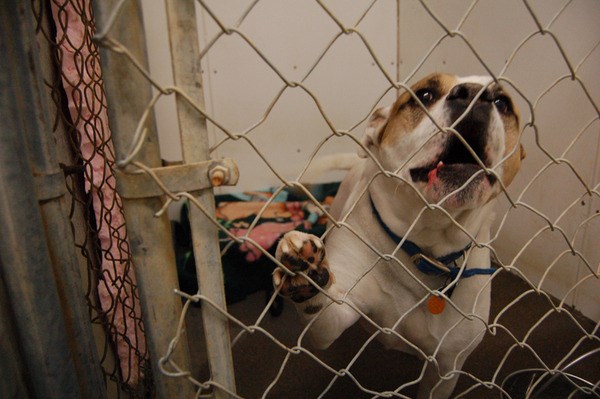When pet owners don't take responsibility for their animals, the Thompson Humane Society is left to clean up the mess and it isn't always a pleasant task, says chairperson Oswald Sawh.
"Tomorrow, we have to put down five dogs," he said in an interview March 15.
That isn't something he or any of the other board members and staff enjoy, but Sawh is adamant that sometimes it's the best choice.
"Some people think the worst thing that can happen to an animal is to be put down," he says, but having seen animals who had been burned or allowed to starve, Sawh doesn't believe that's the case. "There's a hell of a lot worse that could happen to an animal than being put down."
Still, this time it was a matter of space.
The Thompson Humane Society has 15 indoor dog kennels and 20 indoor cat kennels. Through an agreement with the animal control program, eight of the dogs' kennels and nine of the cats' are reserved for animals brought in by animal control, which has to hold them for at least 72 hours in case the owners show up. After that, they can be transferred to the humane society's jurisdiction - if there's room.
"This is a shared facility," said Sawh, and that makes a no-kill policy a no-go. "If you control intake, then you can be a no-kill shelter. You can't control your intake when it comes to the animal control part."
A larger space for the humane society could alleviate some of that problem, and a bigger building is in the plans five or 10 years down the line.
But the real key, in Sawh's opinion, is educating a small minority of irresponsible pet owners.
"We want to make sure you give them the basics," he said - which includes food, water, some sort of shelter and, for animals that are tied up with a chain or a rope, enough slack to allow some level of exercise. "Those are the four things that we press. I don't know how anybody could have an issue with that."
The Thompson Humane Society is busier even than the one in Brandon, with approximately 300 animals in its care at one time or another over the past year. Most of the time, the animals find homes. Before last week, only one animal had been put down due to lack of space since September. But as spring and breeding season approaches, Sawh isn't confident that will continue.
"At this time of year, the demand is so great on us," he said, estimating that the animals they see are just a fraction of those in Northern Manitoba in need of the humane society's help. "We're like a little kid with a finger in the dike."
Over the long term, the humane society envisions itself becoming a regional organization, serving outlying communities as well as Thompson, something it does on a case-by-case basis now, but mostly only in the less-busy winter season. For the upcoming spring and summer, they will have to restrict their services to Thompson.
Another goal is to prevent cruelty to animals. Sawh recalls visiting one community where he saw a puppy that had been burned by a child. When he reported the incident to the RCMP so they could put the dog down, the police said there would be few, if any, consequences for the child, something he feels will lead to more trouble later on.
"That person will be just as aggressive towards people," Sawh said. "It's a basic respect for life. Violators of that should be held accountable."
Sometimes, cruelty even springs from good intentions, something he's seen with the dog shooting programs in Northern communities to reduce the stray dog populations.
"A lot of times, these guys don't have the right people doing it," says Sawh, and animals are maimed instead of being humanely killed.
Ultimately, people and the humane society should act in the best interests of animals.
"We don't want to be warehousing animals," said Sawh, noting that some don't adjust well the shelter life. "At times, it's more inhumane to keep an animal for a long time than to have that animal put down. We've had to put some animals down because they're being stressed. We, as humans, we have a moral responsibility to make sure these animals are taken care of."




